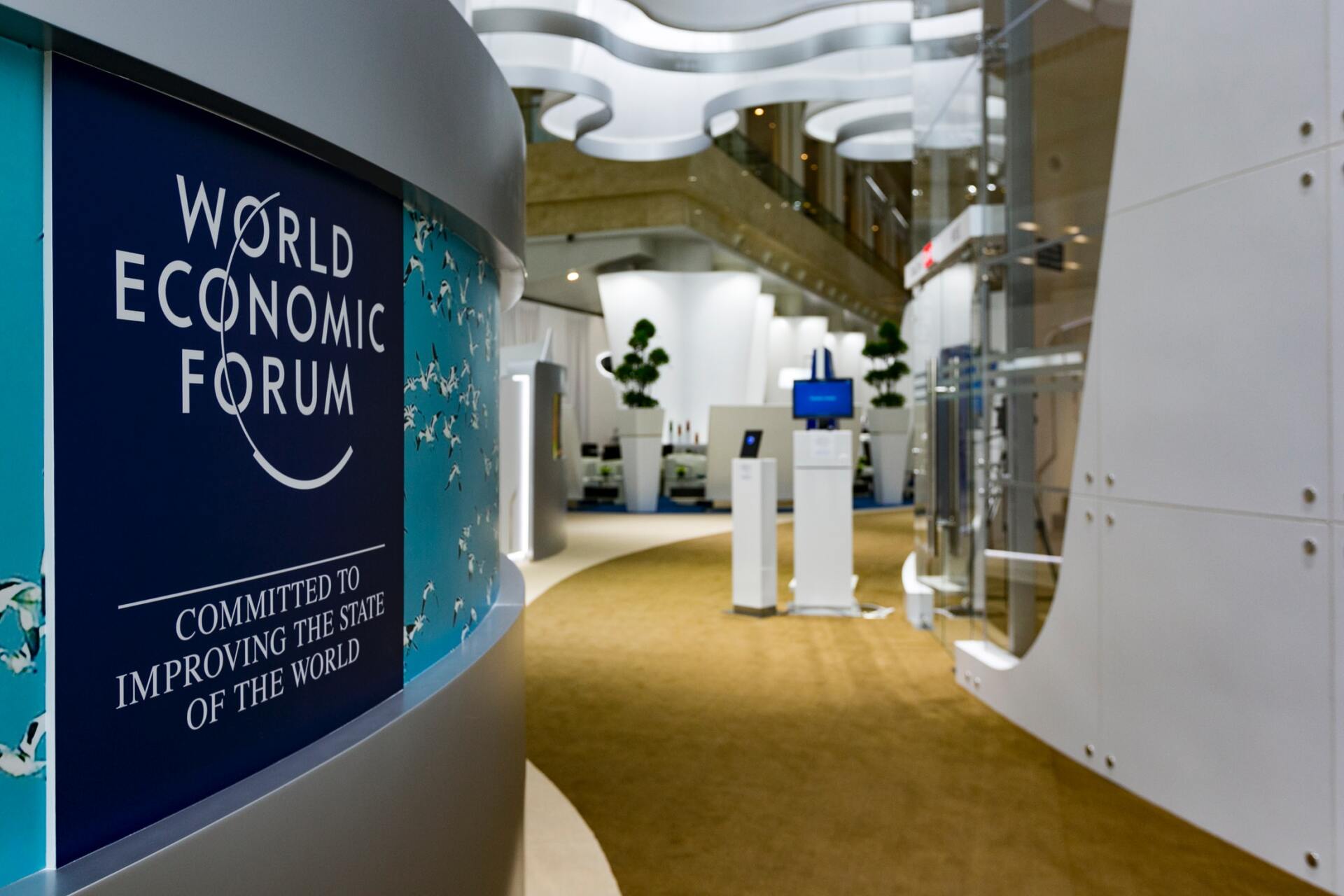What is the Great Reset?
"Many of us are pondering when things will return to normal. The short response is: never. Nothing will ever return to the “broken” sense of normalcy that prevailed prior to the crisis because the coronavirus pandemic marks a fundamental inflection point in our global trajectory" - Covid-19: The Great Reset

The Great Reset
The Great Reset initiative was developed and introduced by Klaus Schwab and Thierry Malleret in their collaborated book Covid-19: The Great Reset. The authors of the book propose a transition into the new age of global technology to not only better cope with a future pandemic but also to prevent a future pandemic. Furthermore, the authors believe that instead of waiting for the current economic system to recover from the pandemic, it would be best to take this small window of opportunity given by the pandemic to implement a new economic order. Not only that, the book proposes a societal reset, geopolitical reset, environmental reset, technological reset and industry reset. All deemed to be necessary due to a SARS-2 virus.
In this article I will discuss two of the above proposed resets, namely the geopolitical and technological resets. Covid-19 has without a doubt highlighted the interconnectedness of nation states in collectively dealing with global issues. Global Governance is at the heart of the Great Reset, nation state governments are more than ever before finding themselves compelled into implementing similar protocols as other nation states facing the similar issues, Covid-19 being a prime example
Moving into a new global technology age would have the most influential bearings on our daily lives. The emergence of new technology will play an influential role in:
- The production of the food;
- How people shop and pay for products;
- The way people socialise;
- The way people exercise;
- The way people study;
- The way people vote; and
- How the way people work and the structure of workplace environments.
National Sovereignty will be replaced with Global Governance and Culture will be replaced with Technology. All that will exist of an individual is his citizenship in a new world order which will govern how life is ought to be lived on a universal scale. Ultimately, the Great Reset is the world’s initiation into the new age of global technology; deepening our reality further into the matrix.
A Call for Global Governance
Global governance is commonly defined as the process of cooperation among transnational actors aimed at providing responses to global problems. It encompasses the totality of institutions, policies, norms, procedures and initiatives through which nation states try to bring more predictability and stability to their responses to transnational challenges. COVID-19 has reminded us that the biggest problems we face are global in nature. Whether it’s pandemics, climate change, terrorism or international trade, all are global issues that we can only address, and whose risks can only be mitigated, in a collective effort
In The Great Reset, Klaus Schwab points out that big problems besetting us take place beyond the control of even the most powerful nation states. The risks and issues to be confronted are increasingly globalised, interdependent and interconnected. The resurgence of nationalism signifies that most critical global issues are being addressed in highly fragmented thus inadequate manner leading to further exacerbation. Such increasing systemic fragilities are responsible for global governance failure, climate action failure, national government failure (with which it has a self-reinforcing effect), social instability and of course the ability to successfully deal with pandemics. Therefore, the concern is that, without appropriate global governance, we will become paralysed in our attempts to address and respond to global challenges, particularly when there is such a strong dissonance between short-term, domestic imperatives and long-term, global challenges.
Whilst Schwab appreciates and respects the sovereign authority of nation states, he indicates that issues facing a number states are ultimately best resolved as transnational issues or otherwise be subject to the ongoing risk of exacerbation. Moreover, Schwab speaking in global risk terms, says it is with climate change and ecosystem collapse (the two key environmental risks) that the pandemic most easily equates. The three represent, by nature and to varying degrees, existential threats to humankind, and we could argue that COVID-19 has already given us a glimpse, or foretaste, of what a full-fledged climate crisis and ecosystem collapse could entail from an economic perspective: combined demand and supply shocks, and disruption to trade and supply chains with ripple and knock-on effects that amplify risks (and in some cases opportunities) in the other macro categories: geopolitics, societal issues and technology.
Covid-19 Lockdowns Help Reduce Climate Change?
Please read the following from The Great Reset keeping in mind that Schwab is speaking in terms of global governance:
Even unprecedented and draconian lockdowns with a third of the world population confined to their homes for more than a month came nowhere near to being a viable decarbonisation strategy because, even so, the world economy kept emitting large amounts of carbon dioxide. What then might such a strategy look like? The considerable size and scope of the challenge can only be addressed by a combination of:
1) a radical and major systemic change in how we produce the energy we need to function; and
2) structural changes in our consumption behaviour. If, in the post pandemic era, we decide to resume our lives just as before (by driving the same cars, by flying to the same destinations, by eating the same things, by heating our house the same way, and so on), the COVID-19 crisis will have gone to waste as far as climate policies are concerned.
Conversely, if some of the habits we were forced to adopt during the pandemic translate into structural changes in behaviour, the climate outcome might be different. Commuting less, working remotely a bit more, bicycling and walking instead of driving to keep the air of our cities as clean as it was during the lockdowns, vacationing nearer to home: all these, if aggregated at scale, could lead to a sustained reduction in carbon emissions.
Schwab was not suggesting a blue-print for the future, but instead informing you of life in the future. The Greater Sydney Commission, founded in 2015, is leading metropolitan planning to make Greater Sydney more productive, sustainable and liveable. Greater Sydney is growing fast. Population projections suggest that the region will be home to about 1.6 million more people over the next 20 years. The commission’s role is to coordinate and align the planning that will shape the future of Greater Sydney. They’re taking a collaborative "one government" approach to this to lead and guide the planning for development, transport and housing so that Greater Sydney will be a productive, liveable and sustainable city for all.
In City-Shaping Impacts Of Covid, the Commission says analyses has found that COVID-19 is accelerating existing trends. For example, with 47 per cent of Greater Sydney’s employees able to work from home, the uptake of digital technology has accelerated as pressure is reducing on the transport system. The increase in people working from home means more people are accessing services in local centres. The increase in time consumers spend in local centres since the pandemic began is greater than in strategic and metropolitan centres. This highlights the importance of vibrant local centres and high streets.
If high levels of working from home continue, there could be more people spending more money and time in their local area. People value the time they save by not commuting and many use that time for leisure. A further component of the increased consumer spending in local communities is the increase in deliveries to the home for food and online purchases. To optimise the benefits of people working from home, such as increased local spending and more leisure time, businesses would need greater investment in technology to support remote working.
A Call for Technological Reset
Cheaper, Greener and much More Convenient?
The following passage is from Covid-19: The Great Reset, please read it to get an idea of how ridiculous the authors of this book really are.
If health considerations become paramount, we may decide, for example, that a cycling class in front of a screen at home doesn’t match the conviviality and fun of doing it with a group in a live class but is in fact safer (and cheaper!). The same reasoning applies to many different domains like flying to a meeting (Zoom is safer, cheaper, greener and much more convenient), driving to a distant family gathering for the weekend (the WhatsApp family group is not as fun but, again, safer, cheaper and greener) or even attending an academic course (not as fulfilling, but cheaper and more convenient).
Also, apparently due to Covid-19 pandemic people have had to resort to training online rather than going to the gym.
Minimising Close Human Contact
The Great Reset takes into account that in one form or another, social and physical distancing measures are likely to persist after the pandemic itself subsides, justifying the decision in many companies from different industries to accelerate automation. After a while, technological employment will increase as societies emphasise the need to restructure the workplace in a way that minimises close human contact. In other words, technology will replace people in the workplace to avoid close human encounters even when the pandemic starts to ease off.
Who is Developing all the Technologies?
Amdocs
Amdocs is a multinational corporation founded in and operating out of Israel. Amdocs is a trusted partner to the world leading communications and media companies, serving more than 250 service providers in over 80 countries. Many people will be surprised to know that in Australia media outlet provider Foxtel and telecommunications corporations Optus and Telstra all use Amdocs software to offer their services to their consumers. Amdocs also have partnerships with other large corporations world-wide including Amazon Web Services, at&t, Bell, BBC Worldwide, Comcast, Crnogorski Telekom, Microsoft, Orange, Nascar Digital Media, NFL Media, Singtel, Sky, Slovak Telekom, Sprint, Verizon, Vimeo, Vodafone and Warner Bros.
Credit: Watch Original Video Here
Argus Cybersecurity
Argus Cybersecurity, founded in Israel, the global leader in automotive cyber security, provides comprehensive and proven solution suites to protect connected cars and commercial vehicles against cyber-attacks. With decades of experience in both cyber security and the automotive industry, Argus offers innovative security methods and proven computer networking know-how with a deep understanding of automotive best practices.
Really? Protecting cars which are connected to the internet from cyber-attacks? Oh right of course since someone may dedicate a decade of their life to be a hacker for the sake of launching a cyber-attack on a car. But not to worry the United Nations Economic Commission for Europe have released regulations on Cybersecurity and Software Updates to which Argus Cybersecurity has pledged complete adherence to. Sure.
Airobotics
Airobotics, founded in Israel, provides an end-to-end, fully automatic solution for collecting aerial data and gaining invaluable insights. The industrial grade platform is available on-site and on-demand, enabling industrial facilities to access premium aerial data in a faster, safer, more efficient way. Drone surveillance, big brother is watching you.
Cortica
Cortica, founded in Israel, has developed autonomous AI that simulates the natural processes of the mammal cortex. Its unsupervised approach to learning mimics the way the brain processes information: enabling machines to learn, collaborate and interact with the world without human input. The technology is backed by more than 200 patents and 10 years of cutting-edge research, and is revolutionising visual intelligence for a smarter and safer world. This AI technology deciphers visual images and gives insights to decision-makers impacting anything from public safety, infrastructure maintenance, workplace safety and traffic control. The efficient framework immediately recognises and indexes anomalous objects, individuals, alert situations and more.
Just think for a second. Are humans really that evil to the point where it is necessary to track the movements and behaviours of every single human being?. Well, Israeli tech developers obviously think so, they think the worst of you.
Bridge Hub
Bridge Hub, founded in Israel, is a regionally based, globally connected whole life cycle innovation hub for Australian and global Agrifood Tech Industry. Bridge Hub is using its $500,000 grant to accelerate its work: researching, testing and commercialising agtech products and processes.
Opinion
Life will be lived in-doors. Future generations will merely perceive the beach to be an idea out of a fairy tale. Human interactions will be rare occurrences. The human soul will cease to exist and will be replaced by a digital persona. Human emotions such as love and excitement will be tamed and abandoned. Real friends will be replaced by imaginary or robotic ones. Purpose and meaning in life will become detached from what serves the human spirit. The most disheartening result of this Great Reset will be humanity's forfeiture of its greatest tools: the human mind and heart.
Article by Adham Tebbie
Click or Tap on
Opinions for more articles by Adham.
Limited Time Offer
Become a Successful NDIS Provider
$689 $349
Use code EARLY349 at checkout
News Feed







